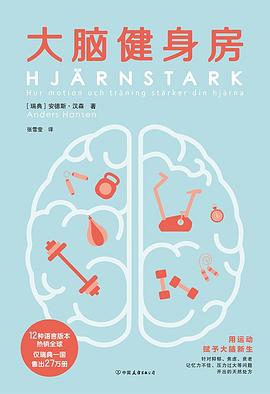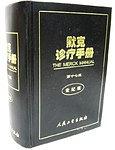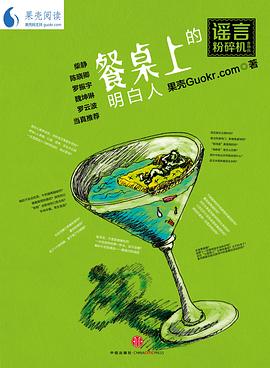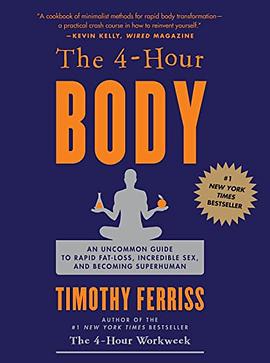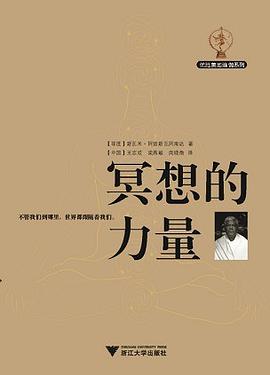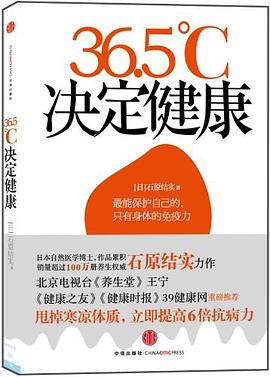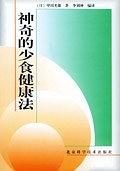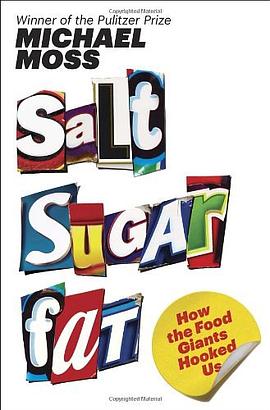

具体描述
#1 NEW YORK TIMES BESTSELLER
From a Pulitzer Prize–winning investigative reporter at The New York Times comes the explosive story of the rise of the processed food industry and its link to the emerging obesity epidemic. Michael Moss reveals how companies use salt, sugar, and fat to addict us and, more important, how we can fight back.
In the spring of 1999 the heads of the world’s largest processed food companies—from Coca-Cola to Nabisco—gathered at Pillsbury headquarters in Minneapolis for a secret meeting. On the agenda: the emerging epidemic of obesity, and what to do about it.
Increasingly, the salt-, sugar-, and fat-laden foods these companies produced were being linked to obesity, and a concerned Kraft executive took the stage to issue a warning: There would be a day of reckoning unless changes were made. This executive then launched into a damning PowerPoint presentation—114 slides in all—making the case that processed food companies could not afford to sit by, idle, as children grew sick and class-action lawyers lurked. To deny the problem, he said, is to court disaster.
When he was done, the most powerful person in the room—the CEO of General Mills—stood up to speak, clearly annoyed. And by the time he sat down, the meeting was over.
Since that day, with the industry in pursuit of its win-at-all-costs strategy, the situation has only grown more dire.Every year, the average American eats thirty-three pounds of cheese (triple what we ate in 1970) and seventy pounds of sugar (about twenty-two teaspoons a day). We ingest 8,500 milligrams of salt a day, double the recommended amount, and almost none of that comes from the shakers on our table. It comes from processed food. It’s no wonder, then, that one in three adults, and one in five kids, is clinically obese. It’s no wonder that twenty-six million Americans have diabetes, the processed food industry in the U.S. accounts for $1 trillion a year in sales, and the total economic cost of this health crisis is approaching $300 billion a year.
In Salt Sugar Fat, Pulitzer Prize–winning investigative reporter Michael Moss shows how we got here. Featuring examples from some of the most recognizable (and profitable) companies and brands of the last half century—including Kraft, Coca-Cola, Lunchables, Kellogg, Nestlé, Oreos, Cargill, Capri Sun, and many more—Moss’s explosive, empowering narrative is grounded in meticulous, often eye-opening research.
Moss takes us inside the labs where food scientists use cutting-edge technology to calculate the “bliss point” of sugary beverages or enhance the “mouthfeel” of fat by manipulating its chemical structure. He unearths marketing campaigns designed—in a technique adapted from tobacco companies—to redirect concerns about the health risks of their products: Dial back on one ingredient, pump up the other two, and tout the new line as “fat-free” or “low-salt.” He talks to concerned executives who confess that they could never produce truly healthy alternatives to their products even if serious regulation became a reality. Simply put: The industry itself would cease to exist without salt, sugar, and fat. Just as millions of “heavy users”—as the companies refer to their most ardent customers—are addicted to this seductive trio, so too are the companies that peddle them. You will never look at a nutrition label the same way again.
“As a feat of reporting and a public service, Salt Sugar Fat is a remarkable accomplishment.”— The New York Times Book Review
作者简介
[美] 迈克尔•莫斯, 2010年获普利策解释性报道奖,1999年和2006年分别入围普利策奖评选,曾获杰拉尔德罗卜新闻奖、美国海外记者俱乐部报道奖。在《纽约时报》之前,莫斯曾任《华尔街日报》《每日新闻》《亚特兰大宪法报》记者。
目录信息
读后感
访谈、数据很翔实。 资本推着食品巨头们走,而加工食品推着消费者走,消费者为食品巨头们积累资本添砖加瓦。 没有特意谋篇布局,就简单记录一些与我个人感受重合的小细节吧。 “可调节的极乐点”:当我使用奶粉而不是直接喝牛奶时,我冲泡的纯牛奶通常会更加浓郁,这意味着相同...
评分 评分令人意外地,比起針對糖、脂肪、鹽對人體造成的各種危害與相關科學數據,書中提到更多涉及食品公司的生產過程與行銷策略,看到一半就覺得這本書應該叫做食品公司巨頭的詭計。不可否認,身處這加工食品琳琅滿目的時代,我們很難抗拒加工食品帶來的味蕾享受,進而上癮到不可自拔...
评分 评分用户评价
《盐糖脂》这本书,就如同在一次看似平常的味蕾冒险中,突然遭遇了一场精心策划的“味觉迷宫”的探索。作者迈克尔·莫斯,以其敏锐的新闻直觉,带领我们深入食品工业的“秘密花园”,揭示了“盐”、“糖”和“脂肪”这三种看似简单的成分,如何被食品巨头们巧妙地运用,以制造出让我们欲罢不能的“完美风味”。我过去以为,食物的美味,是自然的恩赐,而这本书则让我看到了,这背后是冰冷的科学计算和商业策略。 莫斯在书中,详细阐述了食品公司是如何将这三种成分作为“王牌”,来精准地触动我们大脑的奖励机制。他描述了食品科学家们如何通过大量的实验和消费者测试,找到那个能够最大程度地引发我们愉悦感和食欲的“甜蜜点”。一旦触碰到这个点,我们就如同被一种无形的力量所牵引,无法停止地摄入。这种“无法停止”,并非源于我们身体真正的饥饿感,而是源于一种被设计的生理性渴望。 我特别被书中关于“隐藏性添加”的描述所打动。莫斯指出,许多加工食品中,盐、糖和脂肪的含量远远超过我们的想象,并且它们往往以各种我们不易察觉的名称存在于配料表中。这种“隐藏性”,使得消费者在不知不觉中,摄入了过量的这些成分,从而对身体健康造成潜在的威胁。这种“被动性”的选择,让人感到一丝不安。 《盐糖脂》这本书,不仅仅是对食品工业的控诉,更是一次对消费者自我意识的深刻觉醒。它让我们开始反思,我们在享受食物带来的便利和快感时,是否也正在不知不觉中,成为了某些商业模式的“牺牲品”。这本书让我更加警惕加工食品,促使我重新审视我的饮食习惯,并努力去做出更健康、更自主的选择。它是一次深刻的认知之旅,让我得以更清晰地审视我与食物之间的关系。
评分《盐糖脂》这本书,对我来说,就像是打开了一个之前从未被触及的角落,让我窥见了那些我们日常生活中习以为常的事物背后,隐藏着多么庞大和精密的设计。作者迈克尔·莫斯,以他深刻的洞察力和严谨的调查,将那些看似平常的食品,变成了令人着迷的研究对象。我过去对于食品工业的认识,大多停留在“生产”和“销售”的层面,而这本书则将我带入了一个更加复杂的“科学”和“心理学”的战场。 莫斯在书中详细阐述了“盐”、“糖”和“脂肪”这三种看似简单的成分,在食品工业中所扮演的“核心角色”。他并非简单地批判这些成分,而是深入剖析了食品公司是如何利用它们来制造出具有强大吸引力的产品。他描述了食品科学家们如何精确地计算每一种成分的添加量,以达到最佳的味觉效果,从而最大程度地激发消费者的食欲和购买欲望。这种“最佳效果”,往往是在我们大脑的化学反应层面产生的,让我们产生一种无法抗拒的渴望。 让我印象最深刻的是,书中关于“风味协同作用”的描述。莫斯解释说,当盐、糖和脂肪以特定的比例组合时,它们会产生一种远超各自单独存在时的风味强度和愉悦感。这种协同作用,就像是打开了一个味觉的“潘多拉魔盒”,一旦被激活,就很难被关闭。食品公司正是掌握了这种“魔力”,制造出了那些让我们越吃越想吃,越吃越停不下来的食品。 《盐糖脂》这本书,不仅是对食品行业的一次深刻剖析,更是对我们消费者行为的一次有力拷问。它让我开始质疑,我们对“美味”的定义,究竟是发自内心的真实需求,还是被商业广告和营销策略所塑造的幻象。这本书让我明白,在享受食物所带来的便利和乐趣时,我们也需要保持一份审慎的态度,去理解食物背后的复杂运作,从而做出更明智的选择。这是一种沉重的认知,但也是一种解放,它让我能够以更清晰的视角,重新审视我的餐盘。
评分读完《盐糖脂》之后,我的世界观仿佛被重新构建了一番。以往我总以为,那些在电视广告里光鲜亮丽的食品,不过是美味的代名词,是辛勤工作的奖励,是家庭聚会的点缀。但莫斯这本书,像一把尖锐的手术刀,剖开了这层华丽的糖衣,露出了其下冰冷而残酷的商业逻辑。他并不是在写一本关于“不健康食品”的警示录,而是在揭示一种深刻的社会经济现象,一种以味觉刺激为武器,以消费者身心健康为代价,最终实现巨额利润的工业模式。 书中的每一个章节,都像是一次深入敌后侦察的报告。莫斯不畏艰难,深入食品巨头的研发实验室,采访那些参与设计“完美风味”的科学家们,甚至拿到了一些不为人知的内部资料。他详细地描述了食品公司是如何利用盐、糖和脂肪这三种看似简单的成分,通过精密的配方和加工工艺,来制造出让人产生生理依赖的“上瘾性”食品。这种“上瘾”,并非如毒品那般烈性,却是潜移默化,根植于我们对愉悦的本能追求。 我印象最深刻的是,莫斯用大量的案例和数据,说明了这些成分并非“天然”地存在于我们的日常饮食中,而是食品工业为了追求更低的成本、更长的保质期以及更强的市场竞争力,而刻意地、大规模地添加的。这些成分的组合,能够最大程度地刺激我们口腔中的味蕾,并向我们的大脑传递“美味”的信号,让我们的大脑产生欣快感,从而渴望摄入更多。而这种渴望,并非源于我们身体真正的营养需求,而是源于一种被精心设计的化学反应。 这本书让我开始反思,我们对于“享受”的定义是否被商业力量所绑架。我们追求的“美味”,究竟是我们内心深处真实的渴望,还是被食品广告和营销策略所灌输的观念?《盐糖脂》提供了一个视角,让我们看到,在享受美食的同时,我们也在参与一场由巨头主导的游戏,而游戏的规则,往往是不公平的,甚至是有害的。这是一种沉重的认知,但也正因如此,这本书才具有如此强大的力量,它迫使我们走出舒适区,去质疑,去探索,去重新定义健康与快乐的真正含义。
评分《盐糖脂》这本书,就像是为我打开了一个之前从未意识到的“食物密码本”。作者迈克尔·莫斯,以他新闻记者的严谨和洞察力,带领我们穿梭于那些充满“魔法”的食品实验室和生产线上,揭示了“盐”、“糖”和“脂肪”这三种看似平常的成分,如何被食品工业运用到极致,以制造出让我们难以抗拒的美味。我过去以为,食物的吸引力,主要来自于食材本身的品质,但这本书让我看到了,人为的“设计”才是关键。 莫斯在书中,深刻地剖析了这三种成分是如何协同作用,来激活我们大脑中的快感区域。他描述了食品科学家们如何通过精确的配比和加工工艺,来创造出那种能够迅速满足我们的味蕾,并且让我们产生“还想再来点”的渴望。这种渴望,并非源于我们身体对营养的真正需求,而是源于一种被设计出来的生理反应。 令我印象最深刻的是,书中关于“味觉疲劳”的论述。莫斯解释说,食品公司正是利用了我们味觉的这种特性,通过不断地调整盐、糖和脂肪的比例,来让我们的大脑持续保持对这些味道的敏感和渴望,从而让我们不断地摄入。这种“持续吸引”,就像是一种精巧的心理战术,让我们在享受美味的同时,也消耗着身体的健康。 《盐糖脂》这本书,不仅仅是对食品工业的揭露,更是一次对消费者自身选择的反思。它让我们意识到,我们在看似自主的选择背后,可能受到了多方力量的潜移默化。这本书让我更加警惕那些加工食品,促使我去深入了解食物的成分,并努力做出更明智、更健康的饮食决策。它是一次深刻的认知洗礼,让我得以以更清醒的视角,审视我的餐盘。
评分《盐糖脂》这本书,宛如一次对现代食品工业的“深度解剖”,作者迈克尔·莫斯,以其非凡的调查能力,将那些隐藏在精美包装下的真相,层层揭开。我过去对食品的认知,多半停留在“好吃”、“方便”的层面,而这本书则让我看到了,这背后是深刻的科学原理和强大的商业运作。 莫斯在书中,将“盐”、“糖”和“脂肪”这三种基本味道,提升到了“工业引擎”的高度。他并不是简单地将其视为调味品,而是深入剖析了食品公司如何利用它们来精准地触发人类的味觉和生理反应,从而制造出令人上瘾的“完美风味”。书中的案例,生动地展示了这些成分是如何被巧妙地组合,以最大化地激发我们的食欲和购买欲望。 我被书中关于“成瘾性设计”的论述所深深吸引。莫斯解释说,食品公司并非随意添加这些成分,而是经过精确的计算和大量的消费者测试,找到了那个能够最有效刺激我们大脑奖励机制的“甜蜜点”。一旦触碰到这个点,我们就如同被一种无形的力量所牵引,无法停止地摄入,即使理智告诉我们这些食物并不健康。 《盐糖脂》这本书,是对我们消费者购买行为的一次有力拷问。它让我们意识到,我们在选择食物时,很可能受到了比口味本身更深层次的商业力量的影响。这本书让我开始更加审慎地对待加工食品,也促使我努力去了解食物的成分,并做出更健康、更自主的选择。这是一种深刻的认知之旅,让我得以更清晰地审视我与食物之间的复杂关系。
评分读完《盐糖脂》这本书,我感觉自己就像是从一个被精心布置的梦境中醒来,看到了梦境之外的真实世界。作者迈克尔·莫斯,以其非凡的新闻记者功力,深入食品工业的腹地,一层层地揭开了那些我们习以为常的加工食品背后,隐藏着的巨大秘密。我过去总以为,食品的选择是纯粹的个人喜好,而这本书则让我看到,这背后是复杂的科学、精密的营销和深刻的人类心理学。 莫斯在书中花了大量的篇幅,来解读“盐”、“糖”和“脂肪”这三种基本味道是如何被食品工业视为“黄金三角”的。他并不是简单地列举这些成分的危害,而是深刻地剖析了食品公司是如何利用它们来制造出极具成瘾性的产品。他详细描述了食品科学家们如何通过精密的配方和加工工艺,来精确地刺激我们大脑的奖励中枢,从而引发我们对这些食物的强烈渴望。这种渴望,并非源于我们身体真正的营养需求,而是源于一种被精心设计的化学反应。 令我尤其印象深刻的是,书中关于“风味阈值”的讨论。莫斯解释了食品公司是如何研究并锁定那个最能触动我们味蕾,同时又不会让我们感到不适的“最佳风味点”。一旦触碰到这个点,我们就会不自觉地想要继续吃下去,而不会因为过度的咸、甜或油腻而产生警惕。这种“恰到好处”的设计,正是食品工业高明之处,它让我们在不知不觉中,摄入了远超身体所需的份量。 《盐糖脂》这本书,不仅仅是对食品工业的批判,更是一次对我们消费者自身认知的深刻唤醒。它让我开始反思,我们对“美味”的定义,在多大程度上是被商业力量所塑造的。我们常常以为自己是自由的消费者,但事实上,我们的选择很有可能已经被食品公司精心设计的“风味”所引导。这本书让我更加警惕那些加工食品,让我明白,在享受它们带来的便利和口味的同时,也需要付出一些不易察觉的代价。
评分我对《盐糖脂》这本书的体验,就好比是参加了一场精心策划的“真相揭秘”之旅。作者迈克尔·莫斯,以一位经验丰富的新闻侦探的敏锐视角,带领我们潜入了庞大的食品工业的内部世界。我过去总是认为,我们选择吃什么,很大程度上是基于个人的口味偏好和营养需求。然而,这本书彻底颠覆了我的这种想法,让我看到了一个更为复杂和令人不安的现实。 书中花费了大量篇幅,深入剖析了“盐”、“糖”和“脂肪”这三种看似普通的成分,在现代食品工业中的核心地位。莫斯并没有仅仅停留在“这些成分不健康”的层面,而是进一步揭示了食品公司是如何有意识地、战略性地利用这三种味道的组合,来精准地触及人类最原始的味觉和生理反应。他们并不是随意添加,而是经过科学的计算和大量的消费者测试,找到了那个能够最大化引发我们愉悦感和食欲的“甜蜜点”。 我被书中关于“成瘾”的论述所深深吸引。莫斯解释说,食品工业所制造的许多产品,之所以让我们难以抗拒,并非仅仅是因为它们美味,而是因为它们利用了我们大脑的奖励机制。当这些高盐、高糖、高脂肪的食品进入我们的身体,会引发大脑释放出多巴胺等神经递质,产生一种短暂的欣快感。这种欣快感,让我们的大脑将这些食品与愉悦联系起来,从而形成一种生理上的渴望,驱使我们不断地去寻找和摄入。 《盐糖脂》这本书,不仅仅是一次对食品工业的揭露,更是一次对消费者自身认知的挑战。它迫使我们去思考,我们对于“美味”的定义,在多大程度上是被商业力量所塑造的。我们常常以为自己是自由的消费者,但事实上,我们的选择很有可能已经被食品公司精心设计的“风味”所引导。这本书让我开始审视自己的饮食习惯,并且更加警惕那些看似无害的加工食品,让我明白,在享受它们带来的便利和口味的同时,我也需要付出一些不易察觉的代价。
评分我最近读完迈克尔·莫斯(Michael Moss)的《盐糖脂》(Salt Sugar Fat)后,内心久久不能平静。这本书不仅仅是一本关于食物的书,更像是一次深入骨髓的社会观察,揭示了我们日常生活中那些被精心包装、巧妙隐藏的真相。莫斯以他敏锐的新闻记者洞察力,带领我们潜入大型食品工业的腹地,探究那些看似无害的零食、饮料和加工食品背后,隐藏着怎样的科学、营销策略和经济驱动力。 他并没有仅仅满足于揭露“是什么”,而是深入挖掘“为什么”。为什么这些味道浓郁、口感诱人的食物会如此轻易地俘获我们的味蕾,甚至让我们欲罢不能?莫斯通过大量的采访、公司内部文件和科学研究,层层剥开真相。他让我们看到,食品巨头们并不是凭空创造了这些“美味”,而是有意识地利用盐、糖和脂肪这三种最基础、最原始的味觉刺激,来最大化地吸引我们,并最终促成购买。这是一种基于对人类生理和心理的深刻理解而设计的“完美风味”,它精确地触及我们的大脑奖励中心,释放多巴胺,带来短暂的愉悦,但随之而来的却是对这些物质的依赖和渴望。 我特别被书中关于“风味阈值”的讨论所吸引。食品科学家们并非随意添加盐、糖或脂肪,而是经过精确计算,找到那个能让你感受到美味,但又不足以让你皱眉或产生不适的“甜蜜点”。一旦突破了这个阈值,你可能会感到过于咸、过于甜或过于油腻,从而放弃。但那些被精心设计的食品,恰恰停留在那个最令人愉悦的界限上,让你在享受美味的同时,悄然摄入远超健康所需的份量。这种“微量”的叠加效应,正是食品工业高明之处。 《盐糖脂》让我重新审视了自己与食物的关系。我开始意识到,那些充斥着超市货架的加工食品,不仅仅是提供能量的食物,更是一场精心策划的“味觉游戏”。我们常常认为自己是自由的消费者,可以自主选择,但事实上,我们的选择很大程度上已经被食品工业所塑造和引导。莫斯通过讲述食品公司的历史、他们的研发过程,以及他们如何利用心理学和成瘾机制来吸引消费者,让我们看到了一个更加复杂的图景。这本书不仅是对食品工业的批判,更是对消费者自身意识的唤醒。它挑战了我们对“健康饮食”的固有认知,并促使我们去思考,在琳琅满目的选择面前,我们究竟在吃什么,以及为什么会做出这样的选择。
评分《盐糖脂》这本书,宛如开启了一扇通往食品工业幕后世界的“任意门”,让我得以一窥那些我们日常接触的食品,是如何在科学、经济和心理学的多重驱动下,被创造出来的。作者迈克尔·莫斯,凭借其深厚的调查功底,将那些隐藏在光鲜包装下的真相,一一呈现在读者面前。我过去认为,食品的口味,更多是食材本身的特性,但这本书让我认识到,人为的“设计”在其中扮演着更为重要的角色。 莫斯在书中,将“盐”、“糖”和“脂肪”这三种基本味觉元素,提升到了“工业基石”的高度。他并没有简单地将它们视为增味剂,而是深入揭示了食品公司如何利用它们来精准地激活我们大脑的愉悦中枢,从而制造出令人难以抗拒的“上瘾性”食品。书中的许多例子,都生动地说明了,这些成分是如何被精心调配,以达到那种让我们“欲罢不能”的魔力。 我尤其被书中关于“消费者心理学”的解读所吸引。莫斯详细阐述了食品公司如何研究人类的味觉偏好,并利用这些知识来设计出能够最大化吸引消费者的产品。他们知道,人类天生就喜欢高能量的食物,而盐、糖和脂肪正是提供这种高能量的直接来源。因此,他们有意识地将这些成分最大化地添加到食品中,以迎合我们身体的本能,同时也满足了他们产品的市场需求。 《盐糖脂》这本书,是对我们消费者购买行为的一次深刻反思。它让我们意识到,我们在选择食物时,很可能受到了比口味本身更深层次的商业力量的影响。这本书让我开始重新审视自己对加工食品的依赖,也促使我更加谨慎地对待我放入购物篮的每一个产品。它不仅仅是一本书,更是一次关于健康、关于选择、关于我们与食物之间复杂关系的深刻对话。
评分《盐糖脂》这本书,就如同我打开了一扇通往陌生国度的门,而门后并非风光旖旎,却是一片充斥着精巧算计和深刻洞察的土地。作者迈克尔·莫斯,以他非凡的新闻调查技巧,带领我们一步步走进了那些我们每天都在接触,却又鲜少真正理解的食品工厂和研究机构。我过去以为,食品的制作过程,无非是遵循传统的烹饪方法,或是对自然食材的简单加工。但这本书彻底颠覆了我的认知,让我看到了一个被高度科学化、数据化,甚至可以说是“工程化”的食品生产体系。 莫斯着重阐述了“盐”、“糖”和“脂肪”这三种基本味道是如何被食品工业视为“魔法钥匙”的。它们并非简单地被添加以提升口感,而是被精确地控制在特定的比例和组合之下,旨在最大限度地激活我们的味蕾,并与我们大脑中的奖励机制产生共鸣。这种共鸣,会释放出让人愉悦的化学物质,让我们的大脑产生一种“想要更多”的信号。这种信号,是如此的强大,以至于我们常常无法抗拒,即使理智告诉我们这些食物并不健康。 令我尤为震撼的是,书中详细描述了食品科学家们是如何通过海量的实验和消费者测试,来找出那个“完美风味点”。这个“完美风味点”,并非是简单意义上的“好吃”,而是那种能够让你在品尝时感到极大的满足,同时又不会因为过度的咸、甜或油腻而产生不适,从而停止摄入的那个微妙的平衡点。一旦触碰到这个点,你就会像被施了魔法一般,不停地吃下去,直到将整个包装都清空。 《盐糖脂》并不是一本简单的“科普读物”,它更像是一次对现代社会消费文化深层次的剖析。它揭示了食品巨头们如何在深刻理解人类生理和心理的基础上,设计出能够最大化利润的产品。这本书让我开始审视自己对食物的选择,我不再仅仅是被口味所吸引,而是开始思考,在这种口味背后,隐藏着怎样的工业设计和商业逻辑。它像一面镜子,照出了我们消费行为的盲点,也提醒着我们,在享受食物带来的便利和愉悦时,也需要保持一份清醒的批判性思维。
评分食品公司的內幕真是太令人震驚了,先從不吃零食做起
评分http://www.asmou.cn/videolist-id-9058.html
评分The onlY answer is that the food we eat was never meant to be processed. foods cannot compete for mouthfeel market share and shelf life without mind boggling amounts of the trio, most of which is added not to enhance taste, but to cover other nastier ones. Only way to eat conveniently is to eat raw.
评分更坚定要学习food science 和nutrition的决心
评分更坚定要学习food science 和nutrition的决心
相关图书
本站所有内容均为互联网搜索引擎提供的公开搜索信息,本站不存储任何数据与内容,任何内容与数据均与本站无关,如有需要请联系相关搜索引擎包括但不限于百度,google,bing,sogou 等
© 2026 book.quotespace.org All Rights Reserved. 小美书屋 版权所有



